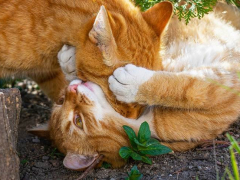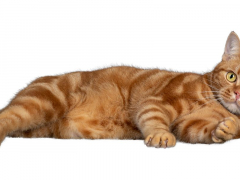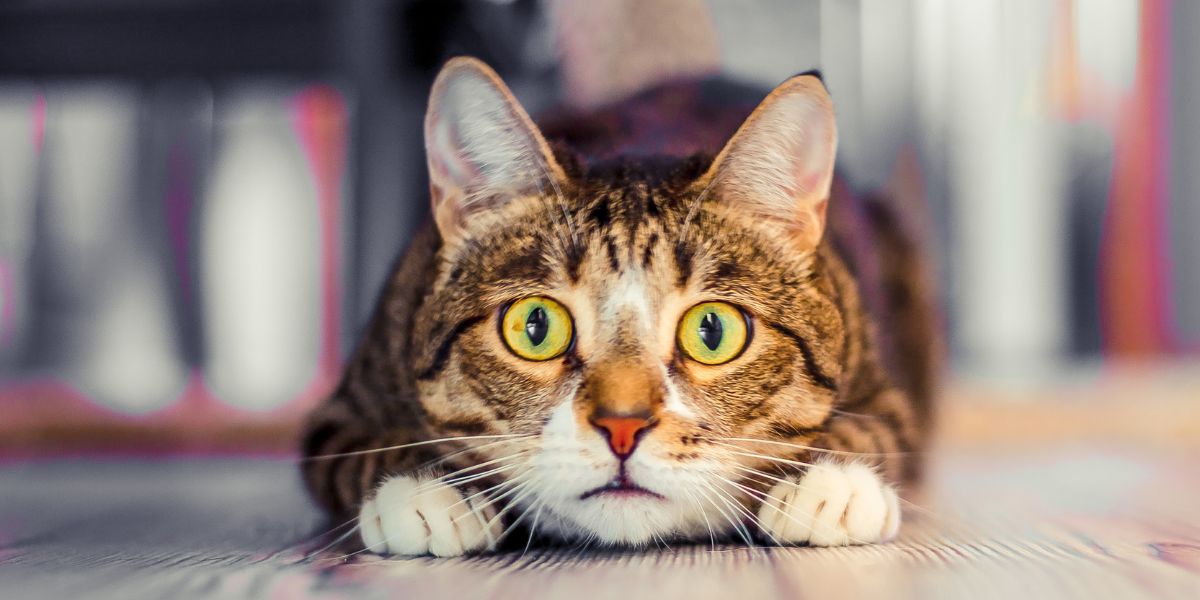
Cats’ ears are far more sensitive than human ears. When you think about all the types of noises that get under our skin, you imagine how much worse it is for our cats.
Lots of different types of noise can contribute to something called “acoustic stress” for our cats. This affects felines in particular as they have an extensive hearing capacity. As part of their evolution, they have adapted to have a keen sense of hearing, so as to enable them to hunt their prey and avoid predators.
Cats need to be constantly aware of things changing in their environment and alert at all times, so they react to even the slightest sound. A cat’s inner ear can pick up sounds in a range of 48 hertz (Hz) to 85,000 Hz. They have one of the widest ranges of hearing of all the mammals. To give you a bit of perspective, human ears can hear frequencies around about 20,000 Hz.
Cats are well-equipped at detecting sounds. Their ears are split into three compartments. Their external ear consists of the ear flap and the canal. They can rotate their ears independently of each other to hear sounds in different directions over a very large range.
The middle ear contains the small auditory bones and the actual eardrum. The inner ear is made up of the cochlea and small semicircular canals of fluid to aid with balance. It really is a very intricate and complicated system that is finely tuned to serve its purpose well.
Also Read: 5 Visual Signs Of A Stressed Cat And How To Help
Cats are sensitive to lots of different sounds, they startle easily and react quickly if there is something that upsets them. They often jump then freeze or run in the opposite direction of the noise when they hear it. You will be able to tell immediately if they don’t like a certain noise.
To avoid stressing your cat out it’s a good idea to make a note of noises or stimuli they don’t like so that you can make their home environment as calm and welcoming as possible. Most cats usually dislike loud and sudden noises.
Cats also dislike noises they haven’t heard before or don’t understand. They find it very stressful when a new noise interrupts them and they can’t get to the bottom of where the noise is coming from.
This being said, it is also good practice to condition your cat to become accustomed to certain noises. This way, loud sounds in their environment won’t cause them as much distress. You can do this by slowly and gently exposing them to the alarming stimuli so they learn that the noises aren’t associated with something negative. Each time they hear the noise and nothing bad happens, they will begin to learn that the noise you are exposing them to is not a cause for concern.
Below is a list of some of the top sounds that irritate your cat. All cats are individuals so not all of these will apply to your cat. Also, some other sounds that aren’t on the list might affect your cat so keep a close eye on your cat to see how they react.
1. Hissing Sounds

The hissing sound made by a spray bottle or aerosol can often upsets cats.
Cats hiss at other cats (or other animals or people) when they are threatened or frightened. To a cat, this noise indicates a scary situation or a probable conflict. It is a triggering sound for them that usually means danger.
Cats associate this sound with negative interactions and outcomes so if they hear anything that resembles a hiss, they will more than likely react. You might be surprised by how many things in and around our homes replicate the hissing noise, including hair spray or aerosol cans, plastic bags when they are rustled, scrunched up aluminum foil, or even some types of clothing rubbing against each other. If your cat reacts to these things, this is probably why!
Also Read: Why Do Cats Hiss & What You Need To Know
2. Banging Sounds
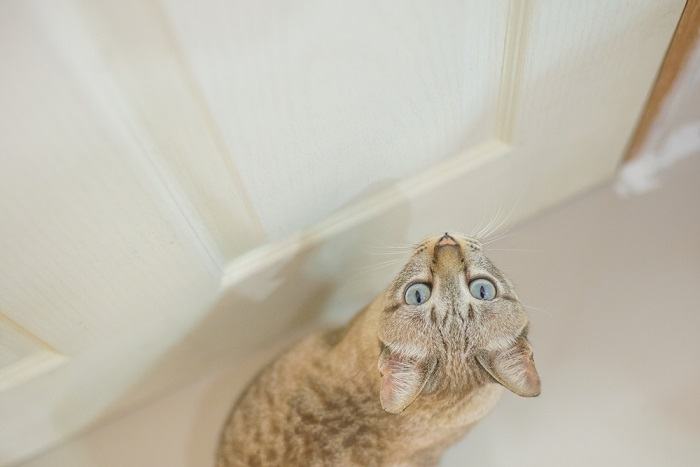
Sudden loud sounds like like pots and pans banging or doors slamming startle cats very easily.
Cats startle very easily, and any loud, abrupt sound is bound to stress them out. They aren’t expecting the noise and aren’t ready for it, so it does unfortunately make them jump. There are many household noises we might be making every day without realizing it.
These include things like pots and pans banging, kitchen blenders, heavy objects being dropped, and doors slamming. Another thing to consider with loud banging sounds is that usually there are vibrations that your cat can also feel, something they also find stressful.
Also Read: 8 Ways To Help a Scared and Fearful Cat Be Confident
3. High-Frequency Sounds

Many electronic devices emit annoying high-frequency sounds that cats can hear but humans cannot.
Cats hear sounds at a much higher frequency than we can. It’s one of their many superpowers. On the downside, this means that many really irritating noises that are actually inaudible to humans are crystal clear for cats.
You may be surprised to learn that many electronic devices such as computer screens and even our television screens and their remote controls all emit high-frequency sounds that can be intensely annoying for our cats. Another offender in this category is fluorescent light bulbs, the sound they emit can be very irritating to cats.
Also Read: The 10 Sounds Cats Love Most
4. Popping Noises

Cats really dislike the sound of popping a balloon or bubble wrap.
Cats tend to hate popping noises for two reasons. First, the noise startles them as it’s unexpected. Second, they can’t understand the process. When something like a balloon is large and right in front of them, then suddenly disappears completely (with a bang!) that’s confusing.
Other things they dislike are bubble wrap popping noises. They are especially uncomfortable if they pop the bubbles themselves with their little claws. Things like balloons also generate static, which cats can feel when they brush against the balloon.
Also Read: 6 Reasons Your Cat Makes Weird Noises At Night
5. Thunderstorms
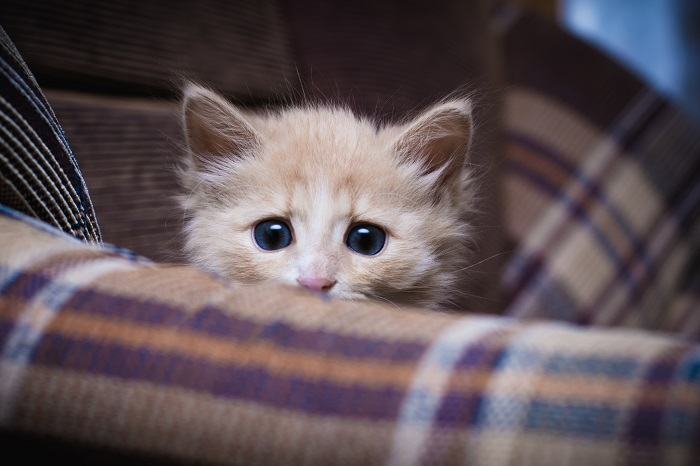
Many cats find thunderstorms stressful due to the sound of the thunder and flash of lightening.
Thunderstorms are super stressful for cats, for a few different reasons. There are random big booming noises of the actual thunder, then there’s flashing lightning at sporadic intervals. There is also a change in air pressure, which cats can sense. Most cats also hate rain and getting wet unnecessarily, so a thunderstorm is not a good place for a cat.
Also Read: Do Cats Have A Sense Of Humor?
6. Fireworks

Many animals find the sound of fireworks terrifying, including cats.
The sheer volume that fireworks go off at is enough to send any cat scuttling for cover. Not only that but they often come with bright flashing lights and hissing and cracking noises. We already know that cats hate hissing sounds, as discussed above.
The heat and the strange sulfur smell can also be a stressor for your cat. Be wary on special dates such as the Fourth of July or New Year’s Eve. If there will likely be firework, you might need to stay in with your cat to make sure they are safe or take extra precautions with them.
Also Read: Do Cats Have A Good Sense Of Smell?
<h2″>7. Loud Yelling/Arguments
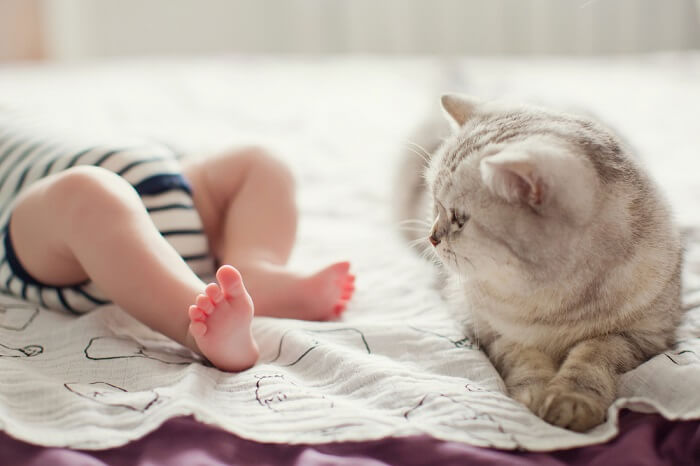
Many cats find the sound of loud yelling or crying, such as that from a baby, very stressful.
Cats are very intelligent and they can pick up on our tone easily. Not only are loud yelling sounds distressing, but cats can tell when we are sad or angry. Cats are very sensitive to disruptions in their home environment.
Cats don’t like chaotic activity which is exactly what arguments are for them. They can sense when we, their humans, are not happy and relaxed. It’s especially upsetting for them if there is in-house fighting. Your cat will often try and hide or cower if people are yelling.
Also Read: Why Is My Cat So Annoying? Cat Attention-Seeking Behavior Explained
Other common noises that cats strongly dislike include:
- Loud music
- Sirens
- Vacuum cleaners
- Motorcycles and cars
- Lawnmowers
- Garbage trucks
- Drills
How Can We Help Our Cats?
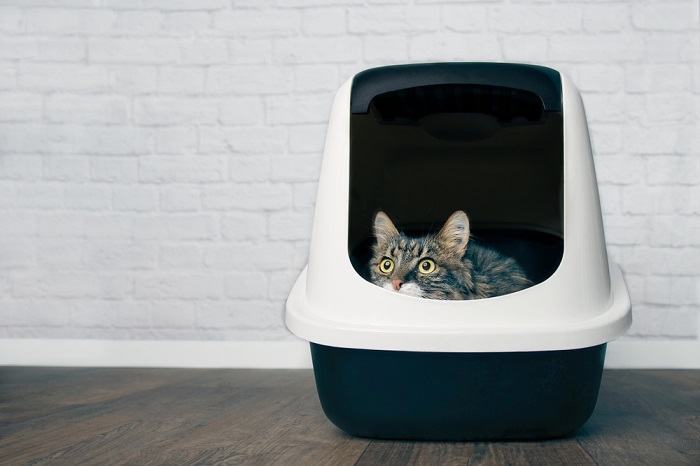
If possible, move your cat to a quiet room or play soft music to cover up the upsetting sounds.
If you can see your cat is visibly distressed by a noise in a room in your house, you can offer them an escape route so that they can go to a quieter place to hide. Ensure their litter box, food, and water are all in a safe quiet place where they are unlikely to experience potential stressors.
If you have no control over certain noises that are causing distress, such as fireworks or thunder, you can talk to your cat in a soothing voice, give them affection and attention, and stay calm and relaxed yourself while the noise is occurring.
Some cats enjoy listening to certain sounds or music that can distract and soothe them. A study conducted by the University of Wisconsin concluded that cats actually enjoy sounds that mimic other cats.
The study referred to these sounds as “species-specific” music that copies the frequency and tempo of cat vocalizations. Some of the team at the university composed music tailored especially for cats. It might be worth checking out if your cat enjoys relaxing to certain types of music!
Also Read: 10 Interesting Facts About Cat Paws You May Not Have Known
Final Thoughts
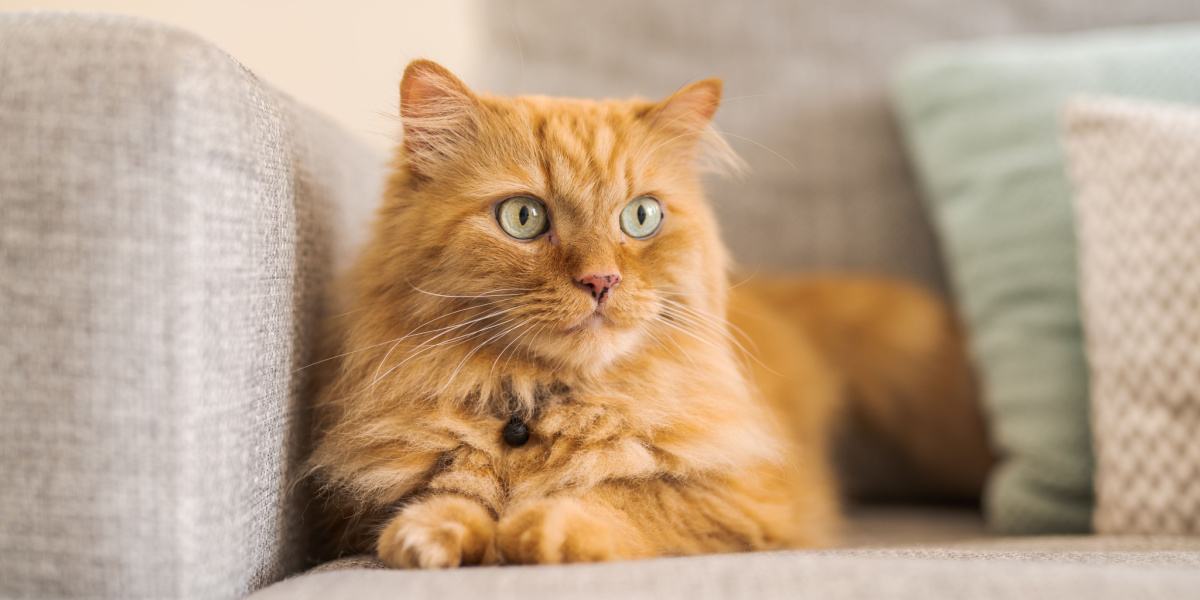
As cat owners, we need to make our cat’s environment as calm and relaxing as possible.
As cat owners, we need to make our cat’s environment as calm and relaxing as possible. The most important thing is to do everything we can to ensure they feel safe.
It’s vital to know the potential stressors for cats as they are hypersensitive to all sorts of different noises. Try to avoid exposing your cat to loud noises in and around the house whenever possible.
If it is feasible, make your cat a safe quiet place they can retreat to if they do feel overwhelmed by the noise. If you create a calm and peaceful environment, you will create a happy content cat!
Also Read: The 7 Best Calming Cat Treats
-
Heffner, R. (1985) Hearing Range of the domestic cat. Hearing Research 19(1):85-8
-
Purves D. (2001) The Audible Spectrum. Neuroscience, 2nd edition
-
https://www.researchgate.net/publication/272568759_Cats_Prefer_Species-Appropriate_Music
-
Snowdon, C. T. (2015) Cats Prefer Species-Appropriate Music. Applied Animal Behaviour Science 166(1)

